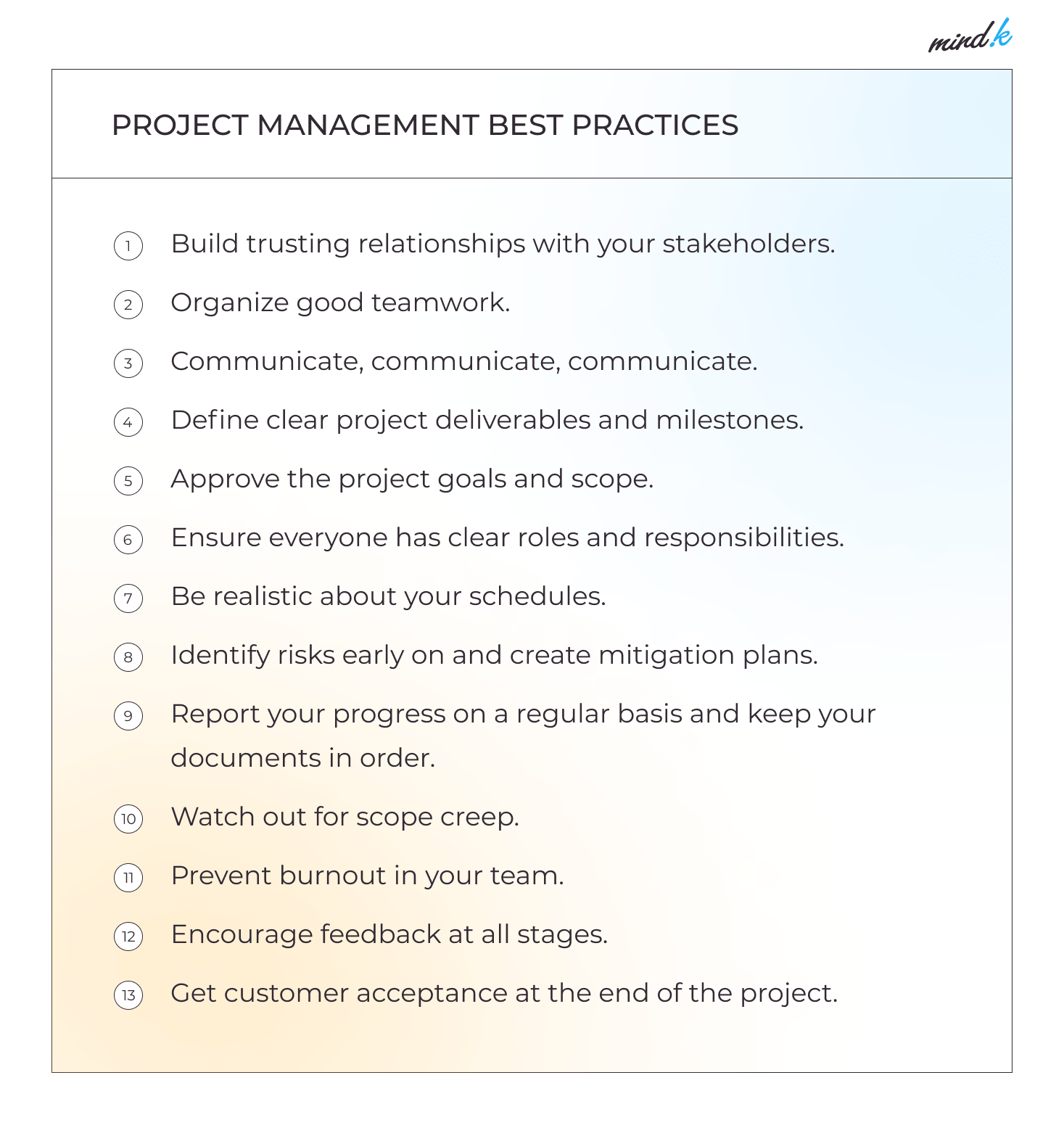Managing projects and teams can be challenging. But with the right practices, you can make it easier. This guide will help you at every stage of your project. Let’s dive in!
Planning Stage
The planning stage is the most important. It sets the direction for your project. Here are some tips:
- Define Clear Goals: What do you want to achieve?
- Create a Timeline: When do you want to complete each task?
- Identify Resources: What do you need to get the job done?
- Assign Tasks: Who will do what? Make sure everyone knows their role.
Good planning can save a lot of time. It helps avoid mistakes and confusion later.
Execution Stage
Now it’s time to start the work. Here are some best practices for the execution stage:
- Communicate Clearly: Keep everyone updated. Share progress and problems.
- Monitor Progress: Check if tasks are on track. Adjust the plan if needed.
- Encourage Teamwork: Promote collaboration. Help team members support each other.
- Stay Flexible: Be ready to change plans. Sometimes things don’t go as expected.
Effective execution is all about staying on top of things. It ensures that the project moves forward smoothly.
Monitoring and Control Stage
In this stage, you keep a close eye on the project. You make sure everything is going as planned. Here are some tips:
- Track Performance: Use tools to measure progress. Are you meeting your goals?
- Identify Issues: Look for problems early. Fix them before they get bigger.
- Manage Changes: If something changes, update your plan. Communicate these changes to your team.
- Report Status: Regularly inform stakeholders about the project’s status.
Good monitoring helps keep the project on track. It allows you to address issues quickly.

Credit: www.mindk.com
Closing Stage
The project is almost done. Now it’s time to wrap things up. Here are some steps for the closing stage:
- Review Deliverables: Make sure all tasks are complete. Check if they meet the requirements.
- Get Feedback: Ask your team and stakeholders for feedback. What went well? What can be improved?
- Document Lessons Learned: Write down what you learned. This will help with future projects.
- Celebrate Success: Acknowledge the team’s hard work. Celebrate the project’s completion.
Closing a project properly is important. It ensures that everything is complete and ready for the next steps.
Best Practices for Team Management
Managing a team requires good leadership. Here are some best practices:
- Build Trust: Trust is key. Be honest and reliable.
- Encourage Communication: Make sure everyone feels comfortable sharing ideas and concerns.
- Recognize Efforts: Appreciate hard work. A simple thank you can go a long way.
- Provide Support: Help your team members when they need it. Offer guidance and resources.
- Promote Growth: Encourage learning and development. Help your team improve their skills.
Good team management leads to better performance. It creates a positive and productive work environment.

Credit: optimumhit.com
Frequently Asked Questions
What Are The Key Stages Of Project Management?
Project management includes initiation, planning, execution, monitoring, and closing. Each stage has specific tasks and goals.
How Do You Define Project Scope?
Defining project scope involves listing deliverables, tasks, deadlines, and resources. It sets boundaries for the project.
What Tools Are Essential For Team Management?
Essential tools include task management software, communication platforms, and collaboration tools. Examples are Trello, Slack, and Asana.
How Can You Improve Team Communication?
Improve team communication by holding regular meetings, using clear language, and encouraging open feedback. Use communication tools.
Conclusion
Managing projects and teams can be complex. But with the right practices, it can be done efficiently. Start with clear planning. Execute tasks effectively. Monitor progress closely. Close the project properly. And always manage your team with care. Follow these guidelines, and you’ll see great results.

